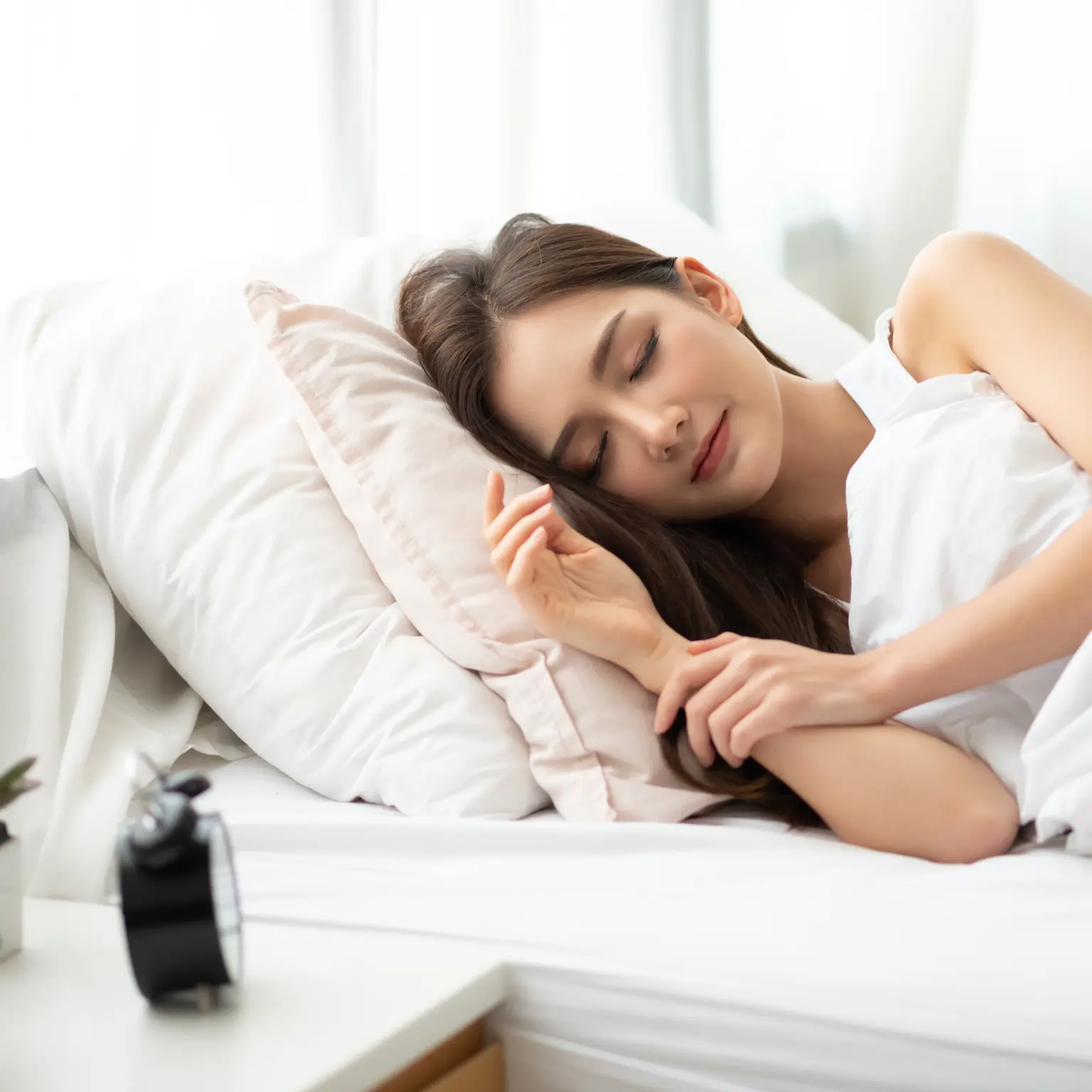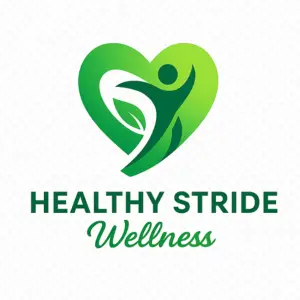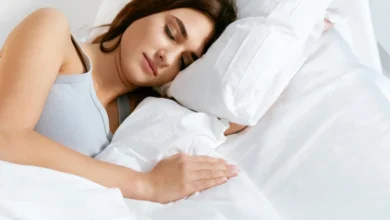What Are the 5 Best Sleep Recovery Techniques for You?

Welcome to Healthy Stride Wellness! We’ve brought you this amazing blog to delve into the most effective sleep recovery techniques that help boost the quality of your rest and ensure that you wake up feeling refreshed and ready.
From managing stress to improving your sleep environment, these techniques are designed for individuals who value their sleep and aim to improve recovery time.
Table of Contents
Key Takeaways
- Consistency is crucial for improving your sleep recovery time and overall sleep quality.
- Optimizing your environment and managing stress are effective natural sleep recovery solutions.
- Utilizing the right tools and routines can enhance both physical and mental well-being.
What Are the Best Sleep Recovery Methods?
The best sleep recovery techniques are those that blend a healthy lifestyle with consistent habits.
These methods aim to help your body and mind recover by optimizing your sleep environment, routine, and activities throughout the day.
Let’s talk about some really helpful strategies:
- Consistent Sleep Schedule: One of the most crucial sleep recovery techniques is maintaining regular sleep and wake time. This routine helps synchronize your body’s internal clock (the circadian rhythm), which governs the sleep-wake cycle.
- Create a Pre-Sleep Ritual: Engage in calming activities like reading, listening to soothing music, or stretching before bed to signal to your body that it’s time to wind down.
Example: For me, reading for 20 minutes before bed has worked wonders, as it helps me relax and disconnect from the stress of the day. - Set Up Your Sleep Environment: Make sure your bedroom is cool, dark, and quiet. A comfortable mattress and pillows tailored to your preferences are key elements of effective sleep recovery.
The success of these best sleep recovery methods comes from their simplicity and how well they align with your body’s natural rhythms.
How Can You Improve Sleep Recovery Time?
Improving your sleep recovery time is essential, especially if you struggle to feel rested after a full night’s sleep.
Several actionable sleep recovery techniques can make a significant difference in the amount of time it takes for your body to fully recover.
- Exercise Regularly: Engaging in moderate physical activity during the day can shorten the amount of time it takes for your body to recover during sleep. Exercise increases the amount of deep sleep (the most restorative stage of sleep), which is when your body and mind heal the most.
- Mindfulness and Relaxation: Before going to bed, practice relaxation techniques like mindfulness meditation, deep breathing, or progressive muscle relaxation. These methods calm your nervous system and can significantly reduce the time it takes for you to fall asleep and recover.
- Avoid Stimulants: Reducing your intake of stimulants such as caffeine and nicotine, especially in the evening, can help improve your ability to enter restorative sleep more quickly.
By applying these sleep recovery techniques, you’ll be able to reduce the time needed for your body to fully recharge.
What Are Some Natural Sleep Recovery Solutions?
When looking for natural sleep recovery solutions, it’s important to consider methods that don’t rely on medication or artificial aids.
There are many effective natural strategies that can help improve the quality of your sleep and promote recovery.
- Herbal Supplements: Using natural herbs such as valerian root, chamomile, and passionflower can promote relaxation and improve sleep quality. These herbs have been traditionally used to reduce anxiety and prepare the body for sleep.
Example: I’ve found chamomile tea before bed to be particularly calming. - Essential Oils and Aromatherapy: Lavender, in particular, is a well-known essential oil for promoting sleep. Diffusing lavender oil or applying a few drops to your pillow before bed can aid in relaxation.
- Magnesium and Melatonin: Magnesium is a mineral that helps the body relax, while melatonin is a hormone that regulates the sleep-wake cycle. Both are natural supplements that can support your sleep recovery process.
By incorporating these natural sleep recovery solutions into your nightly routine, you can improve sleep quality and recovery without the need for medication.
How Can Athletes Improve Their Sleep Recovery?
For athletes, sleep is one of the most crucial aspects of performance recovery.
Whether you’re training for a competition or recovering from an intense workout, using the right sleep recovery techniques can have a massive impact on how well your body restores itself overnight.
- Post-Workout Relaxation: After a workout, engage in activities like stretching or light yoga to help relax the muscles and prepare your body for sleep. This will encourage muscle repair and reduce stiffness the following day.
- Proper Nutrition: Eating a balanced diet, including complex carbohydrates and lean proteins, before bed can help your body repair itself during sleep. Protein is especially important for muscle recovery.
- Nap When Necessary: Napping during the day can help athletes boost performance, but it’s important to keep naps short (20-30 minutes) and earlier in the day to avoid interfering with nighttime sleep.
By implementing these specific sleep recovery techniques for athletes, you can maximize the benefits of rest and recovery, which will improve performance and reduce the risk of injury.
What’s the Connection Between Sleep Recovery and Mental Health?
There is a significant connection between sleep recovery and mental health.
Quality sleep is essential for emotional regulation, cognitive function, and mood stability. Without proper sleep, mental health can decline, leading to increased feelings of anxiety, depression, and stress.
- Sleep’s Role in Emotional Processing: During REM sleep, the brain processes emotions and memories from the day. Without sufficient sleep, this process is disrupted, leading to emotional instability and heightened stress levels.
- Managing Stress Before Bed: Practicing relaxation techniques before bed, such as guided meditation or journaling, can help calm an overactive mind and promote better emotional health.
- Cognitive Behavioral Therapy for Insomnia (CBT-I): This form of therapy can help individuals address negative thoughts or behaviors that interfere with sleep, thus improving both mental health and sleep recovery.
By addressing both mental health and sleep together, you can achieve better emotional stability, making sleep recovery one of the most important contributors to overall well-being.
What Are the Best Tips for Better Sleep Hygiene?
Sleep hygiene refers to the habits and behaviors you can adopt to improve your sleep quality.
Good sleep hygiene is one of the most effective sleep recovery techniques and can lead to long-term benefits for your health and well-being.
- Stick to a Consistent Schedule: One of the best tips for better sleep hygiene is to go to bed and wake up at the same time every day. This trains your body’s internal clock, making it easier to fall asleep and wake up naturally.
- Limit Daytime Naps: While short naps can be beneficial, long or irregular naps during the day can confuse your internal clock and negatively affect nighttime sleep.
- Avoid Heavy Meals and Stimulants: Eating large meals or consuming caffeine close to bedtime can hinder your body’s ability to fall asleep. Try to finish your last meal or caffeinated beverage at least 2-3 hours before going to bed.
Implementing these sleep recovery techniques into your daily routine can greatly enhance the quality of your rest.
How Do You Recover from Stress to Improve Sleep?
Sleep recovery after stress can be challenging, as high levels of stress interfere with the body’s ability to relax and enter restorative sleep.
However, certain sleep recovery techniques can help manage stress and improve sleep quality.
- Breathing Exercises: Deep breathing exercises activate the body’s parasympathetic nervous system, which helps calm the body and mind. Practicing diaphragmatic breathing before bed can lower stress levels and prepare your body for sleep.
- Progressive Muscle Relaxation: This technique involves tensing and relaxing different muscle groups to relieve tension built up during the day. It’s a highly effective method for stress recovery and better sleep.
- Mindfulness Meditation: Regular mindfulness meditation can help reduce the body’s stress response and improve your ability to fall asleep more quickly after stressful situations.
By managing stress effectively, you can enhance your body’s ability to recover during sleep, improving both mental and physical health.
How Can You Improve Deep Sleep Stages for Better Recovery?
Deep sleep is the most restorative stage of sleep and is essential for physical recovery, memory consolidation, and immune function.
Improving deep sleep stages is one of the key sleep recovery techniques to maximize recovery.
- Exercise During the Day: Engaging in aerobic exercise during the day helps increase the time spent in deep sleep stages. Avoid exercising too close to bedtime, as it can make falling asleep difficult.
- Keep Your Room Cool: Deep sleep is most effective when your body temperature drops, so keeping your room cool (around 60-67°F) can help you enter this stage of sleep more quickly.
- Avoid Distractions: Eliminate noise, light, and interruptions during sleep to improve the amount of deep sleep you get. Earplugs, blackout curtains, or white noise machines can help create an environment conducive to deep sleep.
By focusing on these methods, you can enhance the deep sleep stages and improve your overall sleep recovery.
Can Sleep Recovery Apps and Tools Help You Sleep Better?
Technology can be a powerful tool in helping improve sleep recovery.
Many sleep recovery apps and tools are designed to track sleep patterns, suggest improvements, and help users optimize their sleep routines.
- Sleep Tracking: Apps like Sleep Cycle or Oura Ring track your sleep stages and give you insights into how long you’re spending in each stage of sleep. These apps also provide personalized recommendations to improve sleep quality.
- Smart Alarms: Some apps have smart alarm features that wake you up during your lightest sleep stage, helping you feel more refreshed and less groggy in the morning.
- Guided Meditations: Apps like Calm and Headspace offer guided sleep meditations and breathing
- relaxation exercises: These help calm the mind before bed, promoting faster recovery and better sleep quality.
Using sleep recovery apps and tools provides real-time feedback, allowing you to monitor and adjust your habits to maximize sleep recovery.
Conclusion
Thank you for exploring the top sleep recovery techniques with Healthy Stride Wellness!
Our expert strategies, focused on the sleep recovery category, are designed to help you wake up refreshed and ready to take on the day.
By implementing these sleep recovery techniques, you can improve both your mental and physical well-being, enhancing your overall sleep quality.
Prioritize your sleep health for better recovery, reduce stress, and boost daily energy levels.
Follow Healthy Stride Wellness for more insights and take the first step toward a healthier, more rejuvenating sleep experience!
FAQs
What are the best sleep recovery methods for athletes?
Athletes should focus on post-workout relaxation, proper nutrition, and strategic naps for optimal recovery.
How can I improve sleep recovery after stress?
Deep breathing, muscle relaxation, and mindfulness meditation are effective in reducing stress and improving sleep recovery.
Do sleep recovery apps work?
Yes, they track your sleep cycles and provide personalized insights to help optimize sleep quality and recovery.
Please Note: Healthy Stride Wellness provides educational content and is not a replacement for medical advice. Consult a healthcare provider for any health issues.




